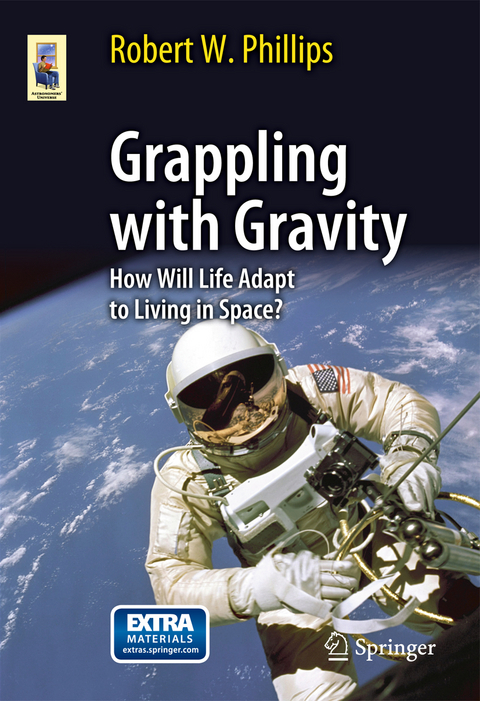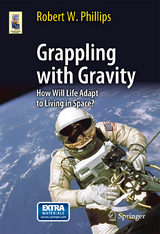Grappling with Gravity
Springer-Verlag New York Inc.
978-1-4419-6898-2 (ISBN)
Grappling with Gravity explores the physiological changes that will occur in humans and the plants and animals that accompany humans as we move to new worlds, be it to colony in the emptiness of space or settlements on the Moon, Mars, or other moons or planets. This book focuses on the biomedical aspects, while not ignoring other life-changing influences of space living. For example, what happens to people physiologically in the microgravity of space, where weight and the direction "up" become meaningless? Adapting to microgravity represents the greatest environmental challenge that life will have encountered since our ancestors moved from the seas to solid Earth. Away from Earth the human body will begin almost immediately to adapt and change, to be able to function in these strange environments. As a person adapts in space he or she will become less fit to live on Earth.
Robert Phillips is a veterinarian and has also a doctorate in Physiology/Nutrition. He taught and conducted research at Colorado State University until 1984, when he was selected by NASA to fly on the"Spacelab Life Sciences 1," the first shuttle mission devoted to biomedical research. Ten months prior to launch Phillips had to remove himself from flight status due to a medical condition. He supported the mission from the payload operations control center. Following the mission, Phillips served for three years at NASA HQ as the Space Station Chief Scientist during the station's design phase. He then joined the NASA Life Sciences Education and Outreach program for 10 years, presenting seminars and workshops to teachers, students, and the public about the effects of spaceflight on life.
Part I: Space Here We Come.- Chapter 1: A Great New Adventure.- Chapter 2: The Long Road to Space Flight.- Chapter 3: Why Go to Space?.- Chapter 4: Change and Prosper.- Chapter 5: Everything is Topsy-Turvy.- Chapter 6: Tomorrow's Tourist Adventures.- Part II: Life in Space.- Chapter 7: Taking Your Body to Space.- Chapter 8: Behavior in Space.- Chapter 9: An Essential Activity.- Part III: Preparing for the Future.- Chapter 10: Living Away from Earth.- Chapter 11: Taking the Plow to Mars.- Chapter 12: Speculations.- Appendix A.- Appendix B.- Acronyms.- Glossary.- Index.
| Reihe/Serie | Astronomers' Universe |
|---|---|
| Zusatzinfo | 102 Illustrations, color; 11 Illustrations, black and white; XI, 271 p. 113 illus., 102 illus. in color. With online files/update. |
| Verlagsort | New York, NY |
| Sprache | englisch |
| Maße | 155 x 235 mm |
| Themenwelt | Sachbuch/Ratgeber ► Natur / Technik ► Weltraum / Astronomie |
| Naturwissenschaften ► Physik / Astronomie ► Angewandte Physik | |
| Naturwissenschaften ► Physik / Astronomie ► Astronomie / Astrophysik | |
| Technik ► Fahrzeugbau / Schiffbau | |
| Technik ► Luft- / Raumfahrttechnik | |
| ISBN-10 | 1-4419-6898-9 / 1441968989 |
| ISBN-13 | 978-1-4419-6898-2 / 9781441968982 |
| Zustand | Neuware |
| Haben Sie eine Frage zum Produkt? |
aus dem Bereich




